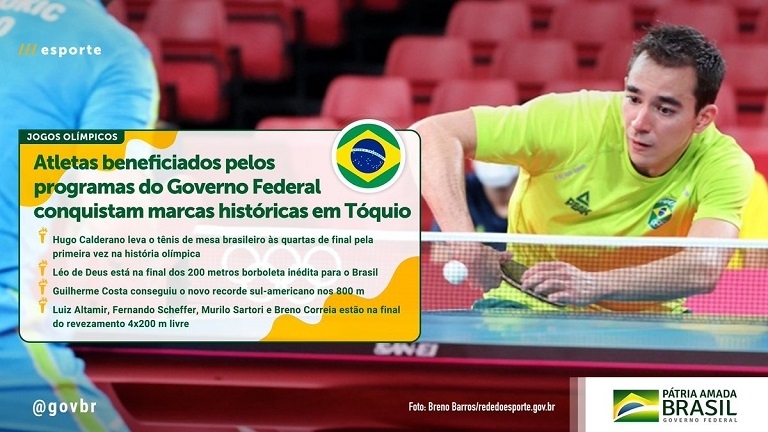

The Lottery Law determines that part of Caixa Econômica Federal's revenue from lottery games must be transferred to the Federal Government, which invests in areas such as health, education, security, sports, among others. Almost half of the total collected from games, including the percentage allocated as income tax, is transferred to investment in priority areas.
Last year alone, the Lottery Law allocated R$ 1.244 billion (US$ 244m) to sports, according to data from Caixa. Of this total, R$292.5 million (US$57.4m) were transferred to the Olympic Committee of Brazil (COB), which shares it with various confederations affiliated to the COB. For the Brazilian Paralympic Committee (CPB) it was R$ 163.1 million (US$ 32m). From January to June of this year, the social transfer in Brazilian sport amounts to R$585,908 (US$ 115k).
Caixa Social Transfers
According to the law enacted in 2001, the resources must be exclusively and fully invested in programs and projects for the promotion, development and maintenance of sport, human resources training, technical preparation, maintenance and transportation of athletes, as well as their participation in events sports.
"By transferring resources in a systematic and ordinary way, the various sports entities can plan their actions in a satisfactory and organized way in order to move towards what the Federal Constitution determines, that is, the promotion of sports by the State to each Brazilian citizen, either with formal or non-formal practices,” said the chief of staff of the Special Secretariat for Sports of the Ministry of Citizenship, Diego Tonietti.

Olympic Results
The investments can be seen in Brazil's performance in the Olympics over the years. “Since the first edition of the Olympic Games of the modern era, the Antwerp Games, in 1920, until the Sydney Games, in 2000, Brazil won 12 gold medals. After Athens 2004 until the Rio 2016 Games there were 18. In other words, before the use of lottery resources, it took Brazil 80 years to win 12 medals, while after the emergence of this source of resources, in just 12 years or four editions of the games, 50% more gold medals were won,” highlighted Diego Tonietti.
Data from the Ministry of Citizenship show that between 1920, when Brazil competed for the first time in the Olympics, in Antwerp, and the Sydney 2000 Games, the country competed in 15 Olympic editions and won 67 medals: 12 gold, 20 silver and 35 bronze. After the approval of the Lottery Law, between 2004 and 2016, in four editions of the Olympic Games there were 63 medals: 18 gold, 17 silver and 28 bronze.
Athlete Scholarship Program
The second largest source of federal transfers to sport comes from the Athlete Scholarship Program. For this year, the program, which is one of the largest direct sponsorships to athletes in the world, has a budget of R$ 143.4 million (US$ 28.15m). This allowed a record number of athletes to benefit, with a total of 7,197. In addition to this amount, an additional R$36.72 million (US$ 7.2m) were allocated to 274 athletes supported by the latest public notice of ‘Bolsa Pódio’, the highest category of ‘Bolsa Atleta’, aimed at athletes with the best positions in the world ranking and with the greatest chances of winning Olympic medals.
Sports Incentive Law
The Sports Incentive Law was enacted in December 2006 and allows resources from tax breaks to be applied to sports and para-sports projects across the country. Only in this Olympic cycle, between 2016 and 2021, the Law had 699 projects aimed at high performance approved for fundraising. The amount raised in this period was over R$640 million (US$ 125.6m).
Source: www.gov.br